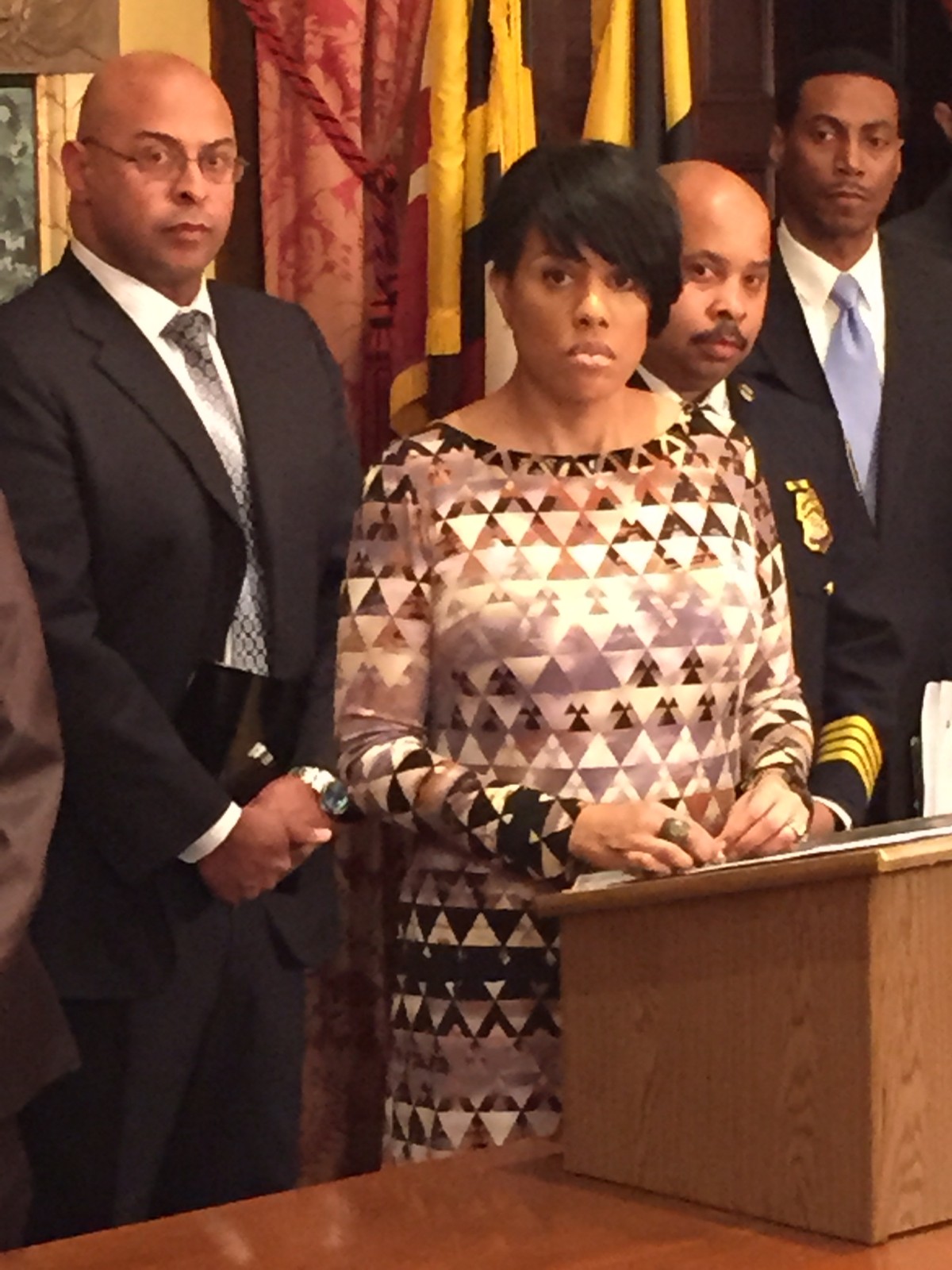From a two-page bill to a working group filled with stakeholders, and a massive Powerpoint full of recommendations. That’s the journey a proposal to bring body cameras to the Baltimore City Police Department has taken. And it’s not over yet.
On Thursday, Mayor Stephanie Rawlings-Blake unveiled her working group’s recommendations for a body camera program.
The rollout doesn’t mean there’s a body camera program yet; just that this is the way the committee thinks it should go.
Read the full report
In vetoing a prior bill that was proposed by the City Council in November, Rawlings-Blake signaled that she wanted the city to take its time.
“I care deeply about getting this right, which is why I insisted that the group conduct a thorough and rigorous analysis before moving forward,” she said Wednesday night at City Hall.
That caution is going to continue with a beta launch.
The working group recommended trying out the body cameras over a six-month pilot period. During that time, 100 officers in high-crime districts (who volunteer to participate) would wear the cameras and test the protocols that have been proposed. Officers would review different types of cameras over the trial period. The pilot is expected to cost the city about $1.4 million. In December, the Philadelphia Police Department began a similar pilot.
The mayor’s working group wants to use the body camera beta to work out any glitches. It also wants to iron out a training program. Using the cameras won’t be as simple as flipping a switch and recording. The technology doesn’t allow the cameras to be on at all times, but cameras should be operated during all interactions with the public.
Then there’s the issue of privacy. Here’s how ACLU Chief Attorney David Rocah described the operation protocol that the working group recommended:
At the outset of an encounter, as early as possible, the officer says that there is a camera that’s recording. If that person is not subject to the officer’s control and can terminate the encounter, then that person has the option to say, “I don’t want to talk to you with the camera rolling.” That interaction, that request, is captured on camera for the protection of both the resident and the officer so that it’s clear that the camera was turned off — not so the officer could hide misconduct, but because the citizen requested it. If during the further course of that encounter the officer decides he or she has to take some enforcement action with respect to that person, then the camera is supposed to come back on. In other words, the camera is on when officers are exercising their right of authority over us as residents of Baltimore.
Even with that lengthy explanation, the working group didn’t fully hash out protocols for filming responses to sexual assaults and crimes that happen inside hospitals.
Another issue that the working group tackled was storage of the data, calling for a secure storage system that stored camera data for four years. Then there’s the issue of whether a cop should have access to the data for writing a report. For routine calls, the committee said they should. But for “non-routine” situation, like officer-involved violence or other kinds of investigations, the group thinks officers should have to make a statement before seeing the footage.
After eight meetings, the group still hasn’t been able to agree on whether the State’s Attorney’s office should have direct access to the data.
More meetings will follow.
The City Council will have to sign off on the recommendations for them to become law. They appear to have two supporters already, as City Councillors Rikki Spector and Brandon Scott were on the working group. The mayor’s staff is working on drafting a supplemental bill that will be introduced soon, Rawlings-Blake said.
The mayor’s office is also taking public input. A public forum scheduled to be held as the recommendations were unveiled was cancelled due to a water main break, but citizens can submit their views to feedback.bodyworncamera@baltimorecity.gov.
Join our growing Slack community
Join 5,000 tech professionals and entrepreneurs in our community Slack today!
Donate to the Journalism Fund
Your support powers our independent journalism. Unlike most business-media outlets, we don’t have a paywall. Instead, we count on your personal and organizational contributions.

A founder’s vision comes alive at a showcase for Baltimore’s student entrepreneurs

Traditional PPE isn’t made for everyone. Here’s how one startup is fixing it.

Comcast introduces ultra-low lag Xfinity internet that boosts experiences with Meta, NVIDIA and Valve


